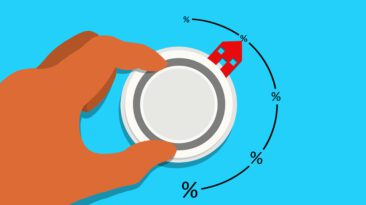A refinance mortgage can be a powerful tool to improve your financial position and achieve your long-term goals. Whether you’re looking to lower your monthly payments, secure a better interest rate, or tap into your home’s equity, refinancing offers an array of opportunities. In this guide, we’ll delve into the world of refinance mortgages, explaining the process, benefits, and important factors to consider.
What is a Refinance Mortgage?
A refinance mortgage, simply put, is a new mortgage loan taken out to replace an existing one. Homeowners choose to refinance for various reasons, such as reducing monthly payments, obtaining a lower interest rate, changing the loan term, or accessing the equity built up in their homes.
The Benefits of Refinancing
Refinancing can offer several advantages, making it a valuable financial move for many homeowners:
1. Lower Interest Rates
One of the primary reasons to refinance is to secure a lower interest rate. A lower rate can significantly reduce the overall cost of your mortgage, saving you money over time.
2. Reduced Monthly Payments
Refinancing to extend the loan term can lead to reduced monthly payments, providing some breathing room in your budget.
3. Shorter Loan Term
On the other hand, if you aim to pay off your mortgage faster, refinancing to a shorter loan term can help you achieve that goal.
4. Debt Consolidation
Refinancing can be an opportunity to consolidate high-interest debts, such as credit cards or personal loans, into your mortgage, resulting in a lower overall interest rate.
5. Access to Home Equity
Through a cash-out refinance, you can tap into your home’s equity for home improvements, debt consolidation, or other financial needs.
When to Refinance?
While refinancing can be advantageous, it’s essential to consider the right time to pursue this option. Here are some situations where refinancing might be suitable:
1. Lower Interest Rates
When market interest rates drop significantly, it could be an opportune time to refinance and take advantage of the lower rates.
2. Improved Credit Score
If your credit score has improved since obtaining your original mortgage, you might qualify for better interest rates and terms.
3. Change in Financial Situation
A change in your financial situation, such as an increase in income or a reduction in debts, may warrant refinancing to better align with your current circumstances.
4. Escaping Adjustable Rates
If you currently have an adjustable-rate mortgage (ARM) and want to secure a fixed-rate loan for stability, refinancing can offer that opportunity.
5. Home Appreciation
If your home has significantly appreciated in value, you may qualify for a cash-out refinance to access the built-up equity.
The Refinancing Process
Understanding the refinancing process is crucial for a smooth and successful experience:
1. Assess Your Goals
Begin by clarifying your refinancing goals. Determine whether you want to lower payments, obtain a shorter loan term, or access equity.
2. Check Your Credit
Review your credit score and address any issues that may affect your ability to qualify for better terms.
3. Gather Necessary Documents
Gather essential documents, including income verification, tax returns, and mortgage statements.
4. Research Lenders
Shop around and compare offers from different lenders to find the most favorable refinancing terms.
5. Apply for Refinance
Submit your refinancing application, providing all required documentation to the chosen lender.
6. Appraisal and Underwriting
The lender will conduct an appraisal of your home and verify your financial information during the underwriting process.
7. Closing the Refinance
If your refinance application is approved, you will close on the new loan, paying off the old mortgage.
FAQs about Refinance Mortgages
Q: Can I refinance with bad credit?
A: While it may be more challenging to refinance with bad credit, it is possible. You may have access to refinancing options designed for borrowers with lower credit scores.
Q: Is there a limit to how many times I can refinance?
A: There’s no specific limit to how many times you can refinance. However, frequent refinancing may lead to higher costs and fees, so it’s essential to consider the long-term benefits.
Q: Can I refinance if I owe more than my home’s current value?
A: It is possible to refinance if you owe more than your home’s current value, but it may be subject to certain requirements and loan-to-value restrictions.
Q: What is the typical refinancing timeline?
A: The refinancing process typically takes between 30 to 45 days from application to closing.
Q: Are there any upfront costs associated with refinancing?
A: Yes, refinancing often comes with upfront costs, including appraisal fees, application fees, and closing costs. Be sure to factor these into your decision.
Q: Can I refinance if my income has changed?
A: Your income plays a significant role in refinancing eligibility. If your income has changed, you’ll need to demonstrate your ability to repay the new loan.
Conclusion
A refinance mortgage offers numerous possibilities to improve your financial situation, from lower interest rates to accessing home equity for important financial goals. By understanding the refinancing process and evaluating your specific needs, you can make an informed decision that aligns with your financial objectives.





Add comment